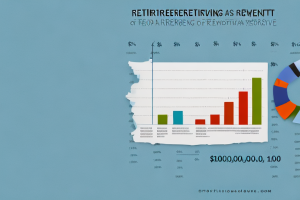Retirement is a significant milestone in one’s life, marking the end of a fulfilling career and the beginning of a new chapter filled with endless possibilities. As you bid farewell to the daily grind, it’s essential to find meaningful activities that not only fill your time but also bring joy, fulfillment, and purpose into your life. In this article, we will explore various ways to pass time when you retire, allowing you to make the most of your newfound freedom and enjoy a fulfilling retirement journey.
The Importance of Finding Meaningful Activities in Retirement
Retirement is not just about leaving behind the workforce; it’s about embracing a whole new phase in life. One of the key factors in making your retirement years fulfilling is finding activities that provide a sense of purpose and meaning. Engaging in meaningful activities can help maintain a sense of identity, prevent feelings of boredom or restlessness, and contribute to overall mental and emotional well-being.
From exploring hobbies and interests to engaging in volunteer work, there are numerous avenues to find fulfillment in retirement. Let’s dive into some of these options and discover the possibilities that await you.
One option for finding meaningful activities in retirement is to pursue lifelong learning. Retirement provides an opportunity to explore new subjects and acquire new skills. Whether it’s taking a cooking class, learning a musical instrument, or studying a foreign language, continuing to learn can stimulate the mind and provide a sense of accomplishment.
Another avenue to consider is connecting with others through social activities. Retirement can sometimes lead to a decrease in social interactions, which can impact mental well-being. Joining clubs or organizations, participating in group activities, or even starting a regular coffee group with friends can help maintain a sense of community and provide opportunities for social engagement.
Exploring Hobbies and Interests After Retirement
In retirement, you have the luxury of time to delve deeper into the hobbies and interests you may have put on hold during your working years. Whether it’s painting, gardening, playing a musical instrument, or photography, pursuing your passions can bring immense joy and satisfaction. Consider joining local clubs or groups related to your hobbies to connect with like-minded individuals and further enhance your skills.
Additionally, exploring new hobbies and interests can also provide opportunities for personal growth and learning. Retirement is a perfect time to try something completely new and challenge yourself in different ways. You might consider taking up a new sport, learning a new language, or even starting a small business based on a hobby you are passionate about. Embracing new experiences can keep your mind sharp and provide a sense of purpose and fulfillment in your retirement years.
Engaging in Volunteer Work to Stay Active and Connected
Retirement offers an excellent opportunity to give back to the community and make a positive impact on the lives of others. Volunteering not only benefits those you help but also allows you to stay active, connected, and engaged with the world around you. Whether it’s mentoring young individuals, assisting at a local charity, or lending a hand in environmental initiatives, there are countless ways to contribute your time and skills.
One of the great advantages of engaging in volunteer work during retirement is the opportunity to learn new skills and gain valuable experience. Many volunteer organizations offer training programs and workshops that can help you develop new abilities or enhance existing ones. For example, if you choose to volunteer at a hospital, you may have the chance to learn about medical procedures or patient care. These new skills not only benefit the organization you are volunteering for but can also be personally fulfilling and enriching.
In addition to the personal growth and learning opportunities, volunteering can also provide a sense of purpose and fulfillment. After retiring, some individuals may struggle with finding meaning in their daily lives. By dedicating your time and energy to a cause you are passionate about, you can regain a sense of purpose and make a meaningful impact on the lives of others. Whether it’s helping to feed the homeless, advocating for animal rights, or supporting education initiatives, volunteering allows you to contribute to something greater than yourself and create a positive change in the world.
Traveling and Exploring the World in Your Retirement Years
Retirement is the perfect time to embark on exciting adventures and explore destinations that have long been on your bucket list. Traveling allows you to broaden your horizons, experience new cultures, and create priceless memories. Whether you prefer to relax on a sunny beach, go hiking in nature, or immerse yourself in vibrant city life, retirement gives you the freedom to design your dream travel itineraries.
One of the great advantages of traveling during your retirement years is the flexibility it offers. Unlike when you were working, you no longer have to worry about limited vacation days or strict schedules. You can take your time exploring each destination, fully immersing yourself in the local culture and lifestyle. Whether you want to spend a few weeks in one place or hop from city to city, retirement allows you to travel at your own pace and truly savor every moment of your journey.
Rediscovering Your Passion for Learning and Education
Retirement presents an excellent opportunity to feed your mind, expand your knowledge, and satisfy your curiosity. Consider enrolling in classes, workshops, or online courses that explore subjects you’ve always been interested in. From history to cooking, science to literature, the choices are endless. Embrace the joy of learning and indulge in intellectual pursuits that stimulate your mind and keep you intellectually engaged.
Additionally, retirement can also be a time to explore new interests and hobbies. Take up a musical instrument, join a local theater group, or try your hand at painting or photography. Engaging in creative activities not only provides a sense of fulfillment but also enhances cognitive abilities and promotes overall well-being. Don’t be afraid to step out of your comfort zone and discover new talents and passions that you may have never had the time to explore before.
Embracing Fitness and Wellness in Retirement
Maintaining a healthy and active lifestyle becomes even more critical as we age. Retirement provides an ideal time to focus on fitness and well-being. Engaging in regular exercise, such as walking, yoga, swimming, or joining fitness classes, not only improves physical health but also boosts mood, reduces stress, and increases energy levels. Additionally, prioritizing a balanced diet and practicing mindfulness can contribute to overall well-being during retirement.
Furthermore, staying socially connected is another important aspect of embracing fitness and wellness in retirement. Joining community groups, participating in volunteer activities, or attending social events can help retirees maintain a sense of belonging and prevent feelings of isolation. Building and nurturing relationships with others can have a positive impact on mental and emotional well-being, which in turn can support overall health and longevity.
Building Social Connections and Maintaining Relationships in Retirement
Retirement doesn’t mean isolation; it’s an opportunity to foster new relationships and deepen existing ones. Seek out social activities and initiatives that allow you to connect with people who share similar interests or experiences. Join clubs, attend community events, or even organize gatherings with friends and family. Maintaining an active social life not only enhances happiness but also provides support and emotional well-being during retirement.
One way to build social connections in retirement is to volunteer for local organizations or charities. Not only does volunteering allow you to give back to your community, but it also provides an opportunity to meet new people and form meaningful connections. Look for volunteer opportunities that align with your interests or skills, whether it’s helping at a food bank, tutoring students, or assisting at a local animal shelter.
In addition to participating in social activities, it’s important to prioritize communication and stay connected with loved ones. Retirement can sometimes lead to physical distance between friends and family, but technology has made it easier than ever to maintain relationships. Use video calls, social media, or even old-fashioned letters to stay in touch with those who are important to you. Regular communication can help bridge the gap and ensure that your relationships remain strong and vibrant.
Creating a Daily Routine to Structure Your Time in Retirement
While retirement brings increased flexibility, having a structured daily routine can help you make the most of your time and maintain a healthy work-life balance. Plan out your days, setting aside dedicated time for various activities such as hobbies, physical exercise, social engagements, and personal time. A well-organized routine ensures that you have a sense of purpose, and it helps you accomplish your goals and priorities while still leaving room for spontaneity and relaxation.
Pursuing Creative Outlets and Artistic Endeavors in Retirement
Retirement provides an ideal opportunity to tap into your creative side and explore artistic endeavors. Whether it’s painting, writing, sculpting, or any other form of creative expression, indulging in creative outlets allows you to channel your thoughts, emotions, and experiences into something beautiful. Joining local art groups or taking part in community exhibitions can further enhance your creative journey and foster connections with fellow artists.
The Benefits of Mentoring and Sharing Your Knowledge After Retirement
When you retire, you bring with you years of experience and expertise. Sharing your knowledge through mentoring programs or workshops not only helps others but also provides a sense of purpose and fulfillment. Mentoring allows you to make a meaningful impact on someone’s life, empowering them with your wisdom and guidance. Consider reaching out to local organizations or educational institutions to explore mentoring opportunities that align with your interests and expertise.
Balancing Leisure Time with Productivity in Retirement
Retirement is a well-deserved break that allows you to enjoy leisure time and relaxation. However, finding the right balance between leisure and productivity is crucial. While it’s essential to indulge in activities that bring joy and relaxation, integrating productive tasks such as organizing your home, pursuing personal projects, or engaging in part-time work can help maintain a sense of structure and purpose in retirement.
Finding Purpose and Fulfillment Through Philanthropy in Retirement
Retirement is the perfect time to align your values and passions with philanthropic endeavors. Whether it’s supporting a cause dear to your heart, donating your time or resources, or establishing your own charitable foundation, philanthropy allows you to leave a lasting impact on society and make a difference in the lives of others. Engaging in philanthropic activities can bring immense fulfillment and a sense of purpose, leaving a positive legacy for future generations.
Nurturing Your Mental Health and Well-being During Retirement
Retirement is a time to prioritize your mental health and well-being. Take the time to engage in activities that promote relaxation, such as meditation, mindfulness practices, and self-reflection. Stay connected with friends and loved ones, seek support when needed, and prioritize self-care. By nurturing your mental health, you can ensure a fulfilling and contented retirement journey.
Planning for Financial Security to Enjoy Your Retirement Activities
Finally, ensuring financial security during retirement is paramount to fully enjoying your chosen activities. Proper financial planning, including saving for retirement, managing investments, and having a clear budget, allows you to have peace of mind and the freedom to pursue your passions without financial constraints. Consult with a financial advisor to create a sustainable retirement plan that aligns with your aspirations and goals.
In conclusion, retirement opens up a world of opportunities to explore, grow, and find fulfillment. By engaging in meaningful activities, nurturing relationships, pursuing passions, and prioritizing well-being, you can pass time in retirement with a sense of purpose and joy. Embrace the possibilities, create a plan that suits your desires and needs, and savor each moment as you embark on this exciting new chapter of your life.



